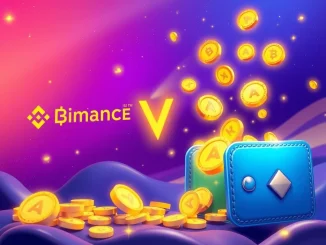
The world of finance is constantly evolving, and the latest big news involves major players making significant moves. Specifically, Wall Street giants like Charles Schwab and Morgan Stanley are stepping further into the cryptocurrency sector. However, a recent analysis from Bernstein suggests their entry might be met with considerable challenges, primarily due to their status as latecomers in an already crowded space.
Charles Schwab Crypto & Morgan Stanley’s Big Entrance
It’s official: Traditional finance powerhouses are ready to embrace digital assets more directly. Charles Schwab recently announced plans to offer spot trading services for leading cryptocurrencies like Bitcoin and Ethereum later this year. Not to be left behind, Morgan Stanley is reportedly gearing up to provide cryptocurrency trading services through its widely used online securities platform, E-Trade. These moves signal a growing acceptance and interest in crypto among established financial institutions and their vast client bases.
Bernstein Report Highlights Latecomer Challenges
While the entry of firms like Charles Schwab and Morgan Stanley is significant, analysts at Bernstein are tempering expectations regarding their immediate impact on the crypto market. According to their recent report, these financial behemoths face an uphill battle. Why?
- **Established Players:** Companies like Coinbase, Kraken, and Robinhood have been operating in the crypto space for years.
- **Competitive Advantage:** These early movers have built established platforms, gained significant market share, and developed brand recognition specifically within the crypto community.
- **Head Start:** They understand the nuances of crypto trading, custody, and customer support, giving them a competitive edge.
Bernstein’s perspective is that simply entering the market doesn’t guarantee success, especially when competing against firms that have already navigated the complexities and built dedicated infrastructure for digital assets.
Can Traditional Finance Crypto Firms Compete?
Despite the challenges posed by existing crypto platforms, Bernstein concedes that traditional finance companies possess unique strengths that could allow them to capture market share over time. These advantages include:
- **Scale and Depth:** Charles Schwab and Morgan Stanley command immense resources, vast customer bases, and deep pockets.
- **Trust and Familiarity:** Their long-standing reputations and established relationships with millions of investors, particularly older demographics, provide a significant trust factor.
- **Attracting Hesitant Investors:** Platforms from familiar names like Charles Schwab crypto trading via their existing brokerage accounts could be highly appealing to older investors interested in Bitcoin or Ethereum but hesitant to open new accounts on unfamiliar, crypto-native exchanges.
This suggests that while competing directly with the agility and crypto-native features of platforms like Coinbase might be difficult, Schwab and Morgan Stanley could carve out a niche by leveraging their existing infrastructure and appealing to a different segment of the market.
The Future of Crypto Market Competition
The entry of Charles Schwab and Morgan Stanley into the crypto trading arena signals a new phase in the crypto market competition. It pits the established power and trust of traditional finance against the crypto-native expertise and user base of platforms that have been operating for years. While Bernstein’s report points out the challenges faced by these latecomers, it also acknowledges their potential to leverage scale and familiarity to attract a specific demographic of investors.
Summary
Bernstein’s report highlights that while Charles Schwab and Morgan Stanley are entering the cryptocurrency market, they face significant competition from established crypto exchanges. Their late entry means they lack the head start of platforms like Coinbase. However, their considerable scale, existing customer relationships, and brand trust, particularly among older investors, could enable them to gain market share despite the challenges. The coming months will show how this clash between traditional finance and crypto-native firms plays out in the evolving digital asset landscape.



